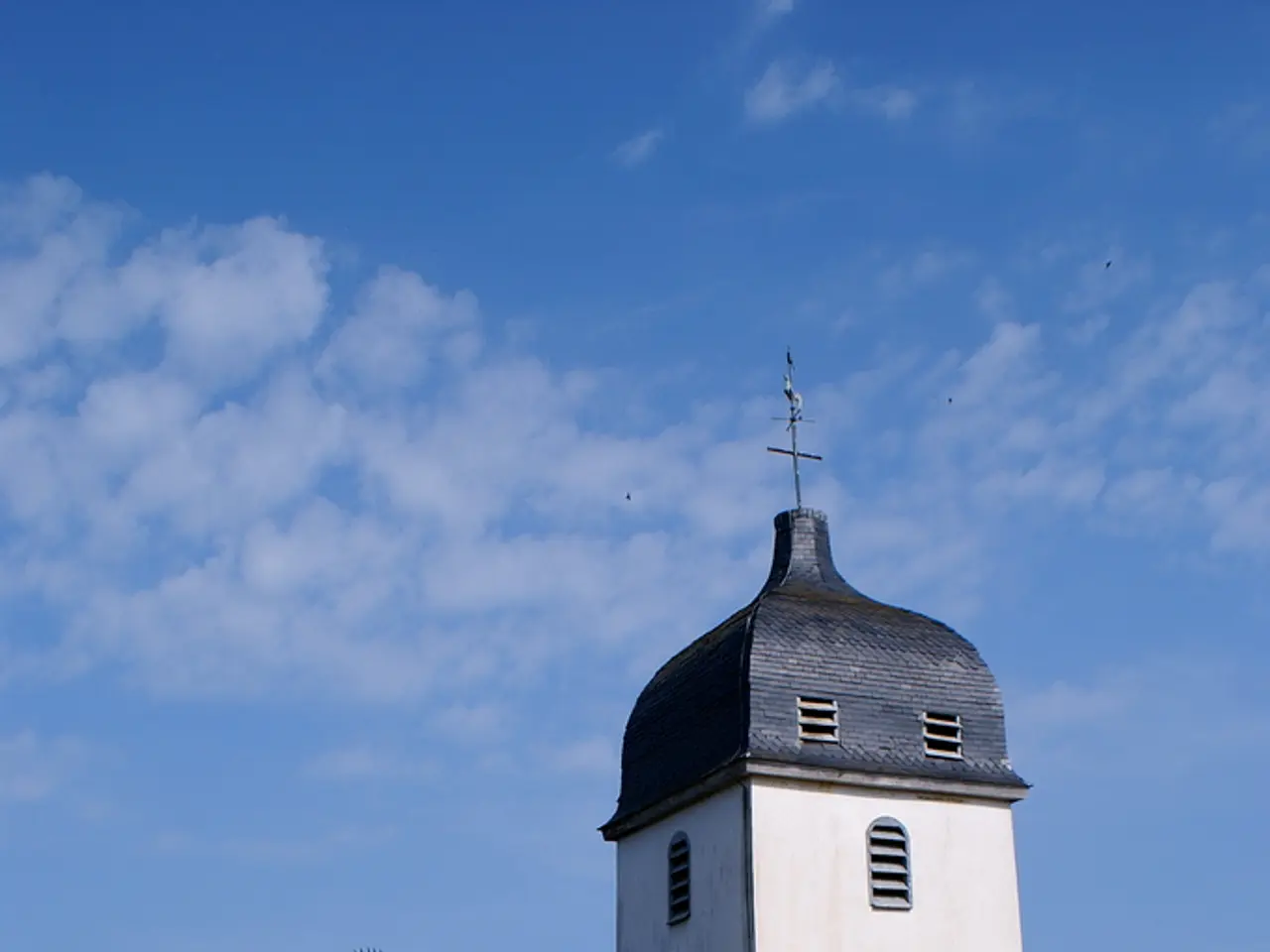Worship services held in an open setting at the lakehouse, marking a notable interdenominational event
A Joint Catholic-Protestant Worship Service at the Lakeside
A unique ecumenical event took place recently at the lakeside, where Catholic and Protestant communities came together for a traditional open-air worship service. The service, themed "around the senses," was co-created by the children and educators of the Protestant kindergarten "Birkenweg."
The story of the blind beggar Bartimaeus was presented during the service, with Pastor Olga Roth comparing the blindness of Bartimaeus to covering one's eyes. She highlighted Jesus' role in making Bartimaeus' darkness bright again. Catholic priest Georg Lichtenberger agreed with the importance of such joint worship services, stating that they demonstrate growing mutual recognition and respect among historically divided Christian traditions.
The service was a joint celebration between the Catholic St. Elisabeth parish and the Protestant Buckenberg-Haidach community. The kindergarten "Birkenweg," affiliated with the Protestant church, played a significant role in the service, with the children singing enthusiastically, accompanied by movements.
Pastor Roth emphasized the need for people who listen and have open hearts. The theme of the service focused on the senses: eyes, ears, nose, tongue, and skin, reflecting the importance of engaging all aspects of our being in worship.
This joint service is a good tradition and an ecumenical highlight, symbolizing a commitment to Christian unity without erasing distinctive beliefs. It provides a platform for witness to peace, reconciliation, and shared faith in Christ beyond denominational boundaries.
The Joint Declaration on the Doctrine of Justification, signed in 1999 between Lutherans and Catholics, marked a key milestone enabling joint worship expressions. While this declaration itself is doctrinal and not a worship service, it symbolizes a significant step towards closer cooperation.
Joint traditional Catholic-Protestant worship services occur mostly in contexts of ecumenical dialogues and special commemorations rather than as frequent, regular events. They often happen on anniversaries related to ecumenism, reconciliation celebrations, or during large ecumenical conferences or gatherings.
In summary, joint traditional Catholic-Protestant worship services have a modern ecumenical origin, occur primarily as special events rather than regular practices, and serve significant roles in promoting Christian unity and reconciliation while respecting denominational identities.
[1] Joint Declaration on the Doctrine of Justification. (1999). https://www.vatican.va/roman_curia/pontifical_councils/christian-unity/documents/rc_pc_just_doc_19991119_declaration-justification_en.html [2] Schlink, A. (2006). The Joint Declaration on the Doctrine of Justification: A New Foundation for the Ecumenical Movement. https://www.c-r-o-n.org/welche-theologische-grundlagen-haben-die-gemeinsamen-gottesdienste-von-protestanten-und-katholiken/ [3] Müller, M. (2018). Joint Worship Services: A Sign of the Times. https://www.lutheranworld.org/joint-worship-services-a-sign-of-the-times [4] Council of the Evangelical Church in Germany. (2017). Joint Worship Services: An Ecumenical Highlight. https://www.ekd.de/aktuelles/ekd-aktuell/ekd-aktuell-2017/ekd-aktuell-2017-08-18-joint-worship-services-an-ecumenical-highlight/
- The kindergarten "Birkenweg," being affiliated with the Protestant church, initiated an activity centered on education-and-self-development and personal-growth by co-creating a joint Catholic-Protestant worship service with the theme "around the senses."
- The Joint Declaration on the Doctrine of Justification, a significant milestone in ecumenical relations, has opened avenues for joint Catholic-Protestant worship services that provide a platform for shared faith, promoting both Christian unity and personal-growth, while respecting denominational identities.




